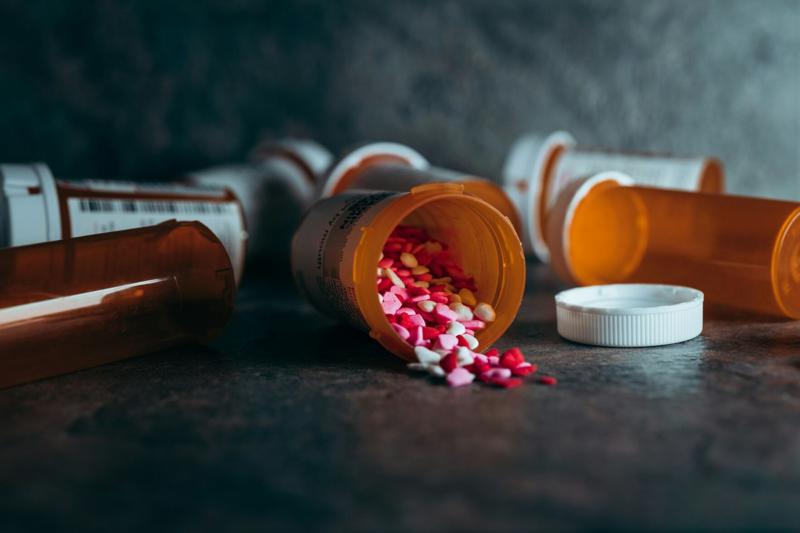(The Center Square) – The largest-ever prescription drug bust in U.S. history has been taken against opioid distributors targeting Houston.
The Department of Justice announced that charges brought against five pharmaceutical distributor executives and five pharmaceutical sales representatives and brokers have been unsealed in the Southern District of Texas, Southern District of Florida, Eastern District of Missouri, and Eastern District of North Carolina.
The charges were part of a larger enforcement action against distributors that allegedly sold nearly 70 million opioid pills and over 30 million doses of other commonly abused prescription drugs to pill-mill pharmacies in the Houston area.
Three Houston-area pharmacy operators were charged in Texas; nine people involved in the scheme pleaded guilty, including in Arizona, Florida, Missouri, North Carolina and Tennessee.
According to court documents, the strongest forms of oxycodone, hydrocodone and hydromorphone were allegedly distributed despite other strengths being available because the most potent sell for the most money on the black market. The prescription drug potentiators alprazolam, carisoprodol and promethazine with codeine syrup were also sold knowing they allegedly enhance opioid highs.
The distributors allegedly targeted pill-mill pharmacies in the Houston area, according to the complaint, because Houston is “a nationally recognized ‘hot zone’ for diversion of pharmaceutical opioids onto the black market.”
The distributors also allegedly sought to thwart detection through several means, including selling the drugs at high prices, implementing low purchasing limits, among other tactics.
The bust was the “largest ever criminal enforcement action targeting distributors of pharmaceutical opioids and commonly abused prescription drugs with estimated street value of $1.3 billion,” U.S. Attorney for the Southern District of Texas Alamdar Hamdani said.
“The distributors that sourced pills into the Houston area may be located across the country, but they targeted Houston, helping to make it a known ‘hot zone’ for drug diversion,” Hamdani said. They allegedly “thwarted law enforcement and oversight by operating across state lines and posing as legitimate businesses, while poisoning our district by targeting pill mills with precisely the drugs at the heart of our country’s addiction crisis.”
“Our DEA Diversion Investigators worked to combat the source of the problem, and the focus shifted to the supply chain, including brokers and distributors operating outside the state of Texas. The investigation concentrated on the brokers and distributors who blatantly enabled unscrupulous pharmacies to inundate local Houston communities with harmful opioids,” said Special Agent in Charge of the Houston Division Daniel Comeaux.
“The defendants, including pharmaceutical drug distributors, allegedly exploited the opioid crisis for profit – selling dangerous and addictive drugs to pill-mill pharmacies at above-market prices, knowing that the drugs would end up on the black market,” said Principal Deputy Assistant Attorney General Nicole Argentieri, head of the DOJ’s Criminal Division.
Unlawful distribution charges carry a 20-year-federal prison sentence; conspiracy to defraud charges carry up to five years; conspiracy to use a communications facility to further the commission of a drug felony carries a maximum four years.
Multiple federal and state agencies were involved in the investigation. U.S. attorneys in Texas, Florida, Missouri and North Carolina are assisting the DOJ with prosecuting the case.
The Office of the Texas Attorney General’s Medicaid Fraud Control Unit played a pivotal role in the investigation.
“This landmark case demonstrates our tenacity and resolve in the fight against prescription drug rings that have worsened the deadly opioid crisis facing our country,” Attorney General Ken Paxton said. “My office will continue to pursue those who exploit our health care system for profit and destroy Texas families with dangerous, addictive drugs.”
Since 2021, the OAG’s MFCU has recovered more than $612 million in settlements, judgments and restitution for Texas taxpayers.
The MFCU receives 75% of its funding from a U.S. Department of Health and Human Services grant and 25%from the state. For every dollar of state funding, the OAG’s MFCU has recovered more than $49 for taxpayers over the past three years, Paxton’s office said.







